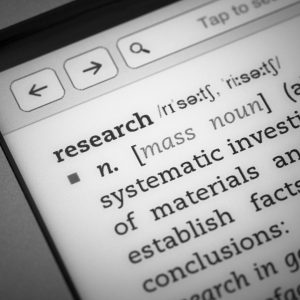Most of us get our news through the TV and social media, and it can be hard to determine what is credible news. Unverified news poses several significant problems, impacting us as individuals but also society as a whole. It often spreads misinformation, leading people to believe falsehoods, which can harm their decisions and actions.
Why is unverified news a problem?
Unverified news can incite public panic, particularly in crises such as natural disasters. It can also be used to manipulate public opinion, fueling political polarization and exacerbating divisions within society. In the economic realm, unverified news can harm businesses, disrupt markets, and damage reputations. Health misinformation, in particular, poses serious risks, leading to dangerous behaviors or vaccine hesitancy, which can exacerbate public health issues. Additionally, false information can perpetuate stereotypes and increase discrimination. Overall, the unchecked spread of unverified news can have far-reaching, harmful consequences for society.
How can I verify news credibility?
Verifying the credibility of news is crucial in an age where misinformation spreads rapidly. A simple search for information about a news source is a key first step in evaluating its credibility. It’s important to look beyond social media. Go to a search engine and plug in the name of the website or publication. Do other legitimate sources describe this publication as unreliable? Satirical?
Beware of t rust busters such as false or untrue content, clickbait tactics, lack of balance, manipulated images, or malicious content.
rust busters such as false or untrue content, clickbait tactics, lack of balance, manipulated images, or malicious content.
Here’s a guide to help you determine if a news source is reliable:
1. Check the Source
Reputable Outlets: Established news organizations with a history of credible journalism (e.g., BBC, Reuters, The New York Times) are usually more reliable. Be cautious of news from unfamiliar or suspicious websites, especially those with strange domain extensions like .com.co or .lo. These are often indicators of fake news websites.
2. Examine the Author
Credentials: Look for articles written by authors with verifiable credentials in journalism or expertise in the subject matter. Be skeptical of articles without a byline (author’s name) or written by someone whose identity cannot be confirmed.
3. Look for Supporting Evidence
Citations and Sources: Credible articles cite their sources, especially when it comes to data or expert opinions. Investigate the quality of the sources quoted in the article. Check whether the article refers to primary sources (like official reports or interviews) or relies on secondary sources (like other articles).
4. Cross-Check Information
Multiple Outlets: If the same story is being reported by several reputable news outlets, it is more likely to be credible. Be wary of stories that only appear in fringe or partisan websites.
Use fact-checking websites like , FactCheck.org, or PolitiFact to verify if the story has been debunked or verified.
5. Analyze the Writing Style
Sensationalism: Fake or misleading news often uses overly dramatic, emotional, or clickbait language to provoke a reaction or gain attention. Headlines in all caps or with excessive exclamation points are often red flags. Credible news organizations usually have professional editors. Articles with numerous spelling mistakes or poor grammar can indicate unreliability.
6. Investigate the Intent
Bias and Agenda: Consider whether the article or news source has a particular political or ideological bias. Credible journalism strives for objectivity and presents multiple sides of an issue. Biased or one-sided reporting is a sign of partial or unreliable information. Some websites publish satire or humor but are mistaken for actual news.
7. Reverse Image Search
Verify Images: Use tools like Google Reverse Image Search or TinEye to check whether the images used in an article have been misused or taken out of context.
Verifying news credibility requires a combination of critical thinking and fact-checking. By analyzing the source, the author, and the evidence and cross-checking information, you can ensure that you’re consuming reliable and accurate news. If you are unsure, it is best to ignore it and definitely don’t pass it on.
You can reach out to your local University of Florida IFAS Extension office for help.
 0
0

